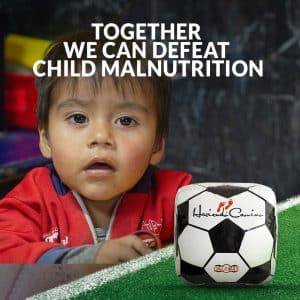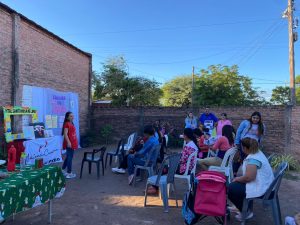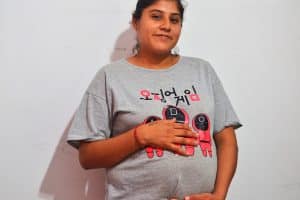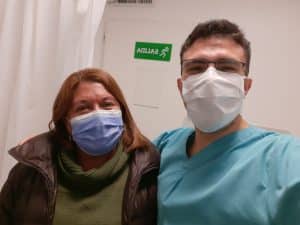Child Development in order to fight malnutrition in northern Argentina
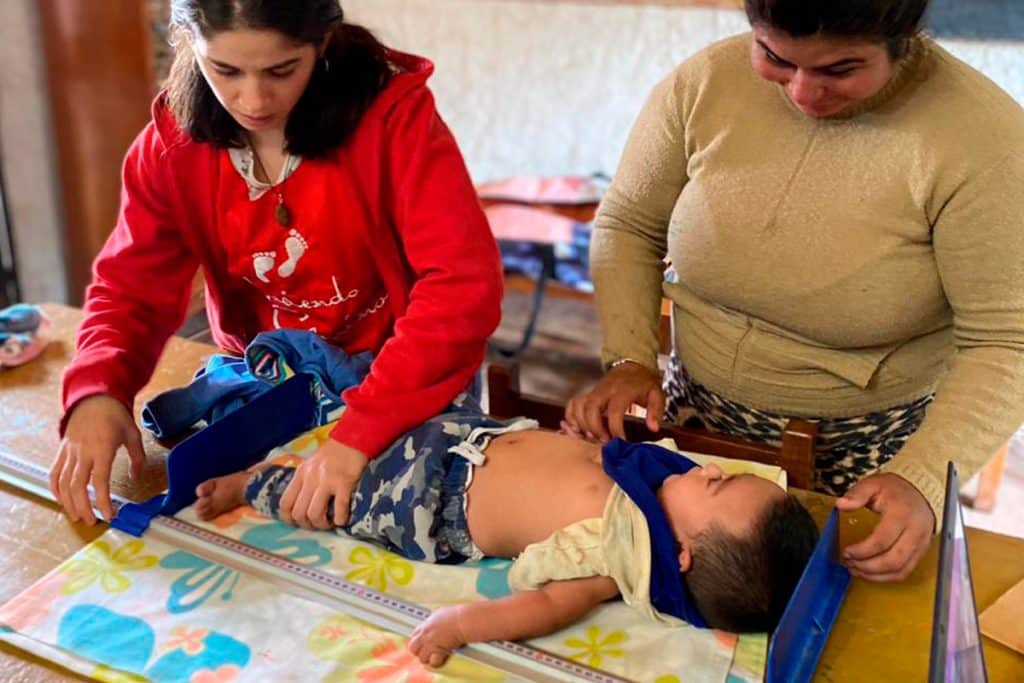
Families attend our Family Child Development Program and receive care. Pampa de los Guanacos, Santiago del Estero.
(Credits: Haciendo Camino)
A paper presented at the “METAS 2021” Ibero-American Education Congress defines child malnutrition as the end result of underdevelopment, where the child suffers the greatest impact due to depending on others for their care and growth.
The prevention of child malnutrition should be intensified, especially in the first two years of life. After this period, the recovery of the child becomes more challenging as permanent consequences remain, noticeably hindering the learning process during the school years.
Since 2006, Haciendo Camino has been dedicated to supporting children, women, and families in situations of vulnerability in northern Argentina to provide more opportunities for a better quality of life.
According to the Ministry of Health of Santiago del Estero, 31% of children under 5 years of age suffer from chronic malnutrition. In these regions, child and adolescent poverty (0-14 years) reaches 56.2% according to data from the first half of 2023 from the National Institute of Statistics and Census (INDEC). In addition to this, the lack of access to clean water and basic sanitation are daily problems for many families.
“Family Child Development” is one of the programs aimed at addressing these issues, providing solutions in the nutritional, educational, and family support areas to promote the development and well-being of children in the region, as well as strengthening their families.
This program is divided into two main components: Nutrition and Early Home Education. While the former focuses on monitoring and nutritional recovery of children, the latter promotes positive parenting through activities that target cognitive, social, emotional, and physical development.
Throughout the program, a comprehensive approach is taken in Nutrition and Food Security. This includes providing nutritional assessments for children and offering training to mothers on proper nutrition. It is complemented by Early Stimulation, which involves monitoring children, providing training and activities for mothers to encourage stimulation at home, and Family Support, where personalized follow-up is conducted for each family on health, household finances, identity, income, and more. Another crucial component is Health Education, a space for discussions related to child care, access to rights, and positive parenting. Last but not least, there are Craft Workshops, a section dedicated to mothers to promote working with recycled materials and provide a meeting place for peers.
Providing personalized support to each family is essential as it allows for the effective identification and addressing of the specific needs of each individual and their environment. Furthermore, the inclusion of trained community members as project companions encourages the active participation of beneficiaries in their own transformation.
Haciendo Camino is committed to working day by day to promote the comprehensive development of children within their families, enabling them to reach their full potential.
This daily effort is guided by the overarching goal of achieving a country with equal opportunities where boys and girls can grow without giving up playing.

